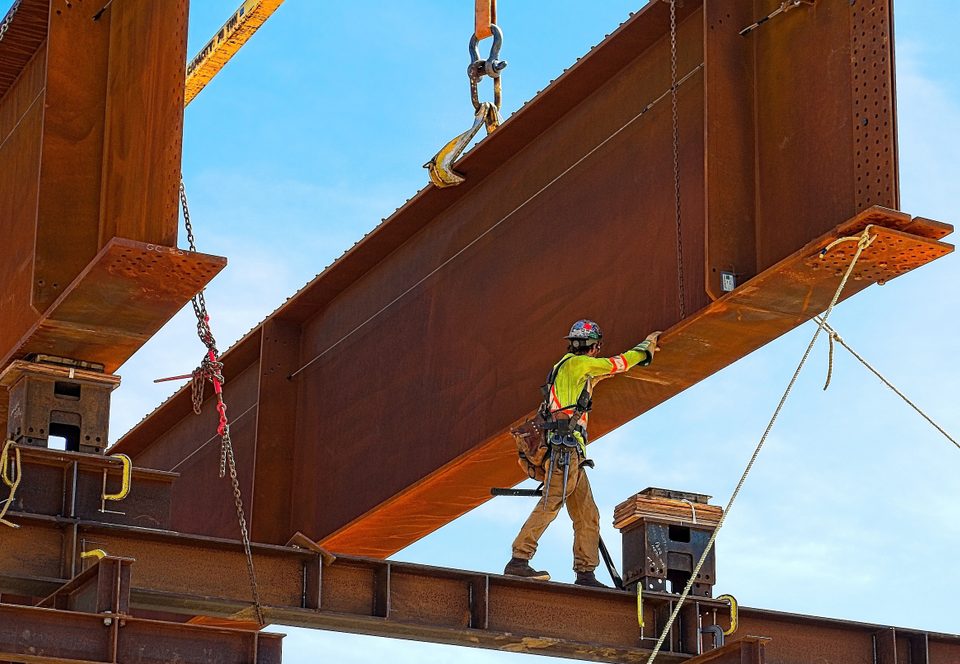Steel and Metal Building Codes and Permits

The Versatile Qualities of Mild Steel
October 6, 2023
Spray Foam Insulation for Steel Structures
November 3, 2023There are numerous settings in the construction world where permits and related needs will come up, and the realm of steel and metal construction is no exception. Knowing the relevant codes and requirements for any steel construction is vital, and may also involve acquiring or maintaining certain permits as well.
At Wasatch Steel, we’re here to help with a huge range of steel products and steel services across Salt Lake City and Utah, with numerous products tailored directly to steel construction needs. Here are some basics on metal and steel building codes, permits and other basic requirement types to be aware of for jobs in this realm.
Building Codes Vs Building Permits
Two important matters to understand when starting with a specific steel construction project are building codes and permits. Building codes cover the standards for design, materials, installation and safety aspects of any structure; in contrast, permits provide permission from local authorities to begin the construction project at all.
Both of these are vital for steel builders, who must meet these requirements to ensure safety and quality from the ground up.
Common Metal Building Codes
While this is far from a comprehensive list, here are some of the most common and notable building codes that steel and metal construction professionals will typically need to be in compliance with:
- Energy codes: These are a requirement for nearly all buildings in most areas, and specify certain standards for energy-efficient materials and construction processes. For instance, insulation and air leakage standards may be laid out here.
- Structural codes: These vary by location, with a few standard codes that are typically used. Structural steel construction generally follows either the American Society of Civil Engineers (ASCE) or American Institute of Steel Construction (AISC) standards. These codes involve everything from weather withstanding elements to load requirements, detailing standards and more.
- Fire codes: These are designed to outline fire resistance requirements for buildings, with steel normally being one of the strongest materials in this regard.
- Plumbing and electrical codes: If your building will have plumbing or electrical components, separate codes may be necessary for each of these areas.
- Life safety codes: Also known as the International Building Code (IBC), this is a set of standards designed to ensure buildings are safe for occupancy. This covers everything from fire protection to disaster preparation, ventilation and numerous other elements.
Commercial Vs Residential Building Permits
When it comes to permits, there are different types that may be required for commercial and residential steel building projects. Here are some differences to know:
- Commercial permits: These are needed for any projects where the structure will be used for business purposes.
- Residential permits: On the other hand, these are necessary for structures intended primarily as living spaces.
Each of these types breaks down into several sub-categories as well, however.
Examples of Steel and Metal Building Permits
There are a wide variety of permits that may apply to your steel or metal building project. Again, while this is not a comprehensive list, here are some of the most common:
- Remodeling or renovation permits: For many steel constructions, the project will involve remodeling or renovation to an existing structure. In these cases, there may be additional permits required specifically for this purpose.
- New construction permits: In other cases, the project will be a new construction from the ground up. In these cases, you’ll need permits for all aspects of the project, including foundations, framing, electrical work and more.
- Foundation and structural permits: For many steel buildings, foundation and structural permits may be required separately from other aspects of construction. These are necessary to ensure the safety and stability of the building.
- Mechanical, electrical and plumbing (MEP) permits: If your project has any mechanical, electrical or plumbing components, there will likely be separate permits needed for each of these areas.
- Occupancy permits: Depending on the location and type of building, there may be specific occupancy permits required before you can legally occupy the space. For instance, a restaurant may need specific permits to operate.
- Accessory structure permits: For smaller metal buildings like carports, sheds, or garages, there may be specific permits required for these accessory structures.
Overall, understanding building codes and necessary permits is crucial for any steel construction project. It’s important to research and stay up-to-date on all relevant requirements to ensure a successful build. At Wasatch Steel, we’re here to help with any questions you may have about steel construction and the related codes and permits. Contact us today for more information about this or any of our steel products and services for clients around SLC and other parts of Utah.



